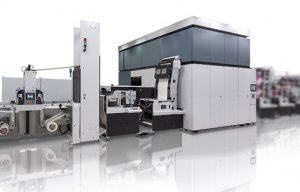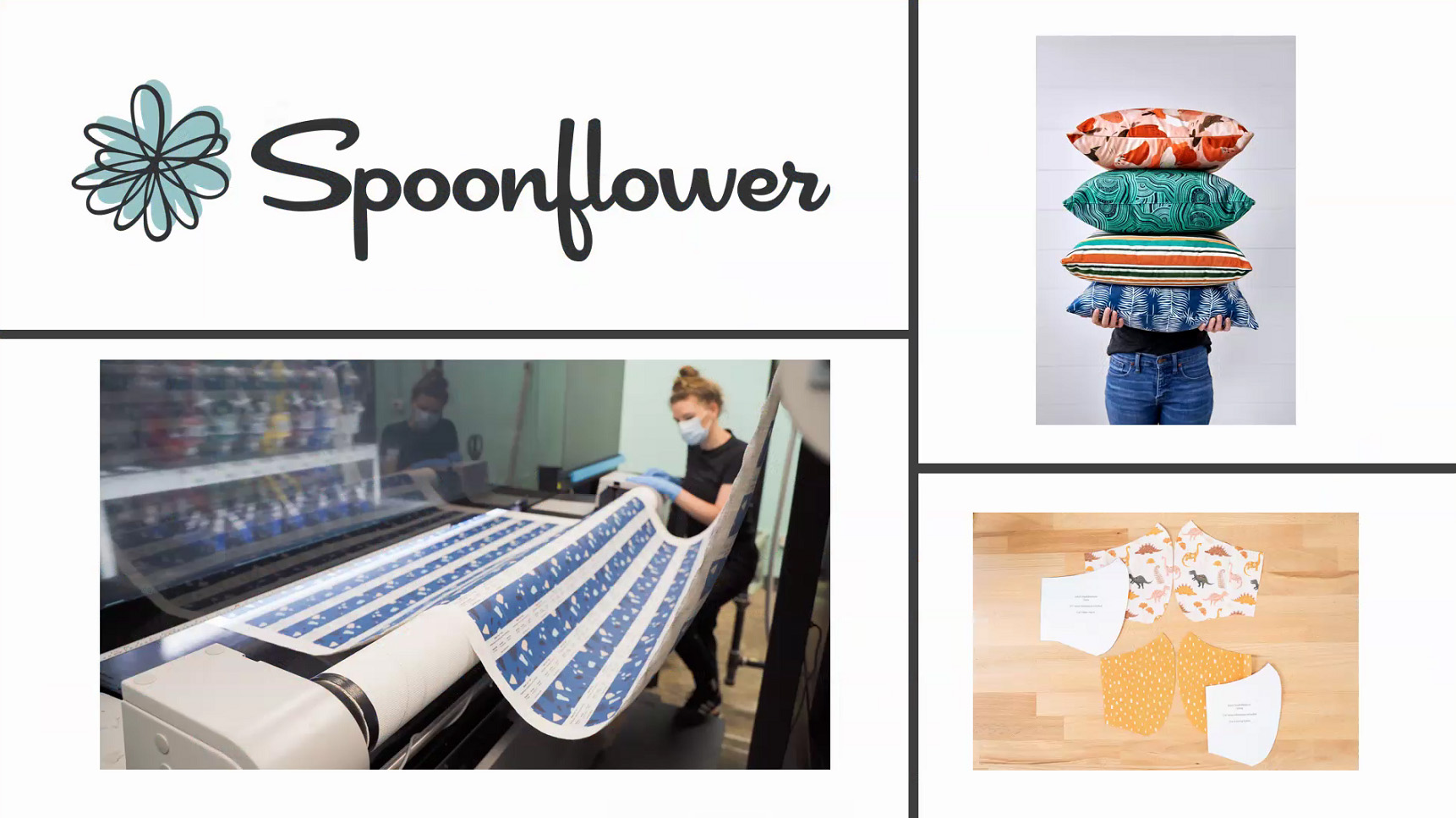
SPGPrints ready for Barcelona
Opinion


Leading proponents of online digital printing services in the USA discussed their companies and the sector's during a seminar organised by Techtextil NA & Texprocess Americas.

15th January 2021
Adrian Wilson
|
Online
Kerry King is the senior vice-president of R&D at Spoonflower, which has been a runaway success since its foundation almost 12 years ago by Stephen Fraser and Gart Davis. Back then, very few people considered the possibility of designing and printing their own fabrics because not only was printing a custom design expensive – from $50 per yard for bulk orders up to $150 a yard for smaller orders – but many surface pattern designers didn’t have a low-investment platform from which to distribute their products directly to consumers. Advances in digital printing and online sites like Spoonflower have changed this beyond recognition.
The company’s customers have subsequently grown to over 4.5 million people who use its online marketplace to select from more than a million designs for fabrics and wallpapers.
Spoonflower is currently in the process of moving to a larger and more well kitted-out facility at its headquarters in Durham, North Carolina, which will soon be as fully integrated as the company’s second operation in Berlin, Germany, which currently deals with international orders.

Design Pool
Kristen Dettoni is the founder of Design Pool, based in East Hampstead, New Hampshire, which specialises in the licensing or supply of proprietary seamless patterns via its own digital library, and works in partnership with the leading print-on-demand companies like Spoonflower. A key goal is raising the awareness of the potential of on-demand digital print services with institutional specifiers, architects and interior designers. Domada Design is a recently formed extension of Design Pool with a focus on items for individual home interiors.
Domada was established as an online store in just 30 days.
“That wouldn’t have been possible in the past, without Industry 4.0 tools,” Dettoni said. “We have no inventory, and everything is made on demand. The DIY part of the business has been very successful, but the challenge is in getting across to the commercial and residential companies. The DIY makers get it, but interior designers have little awareness of the potential and these are the markets we’re seeking to infiltrate.”

Prima-Tex
Based in Buena Park, California, Prima-Tex is a family-run full service provider of both digital and rotary printed fabrics, from design, through fabric sourcing, printing, cutting and sewing to labelling and packaging.
CEO Jonathan Tio said the company started with rotary printing, which still made sense for a lot of customers making bulk orders of single-design fabrics.
“The two technologies can work well together, especially supplying digitally printed samples and then rotary for bulk orders due to the lower overall costs. A good thing about digital printing, however, is that there are a lot more people investing time in R&D.”
With ten sewing machinists on site, Prima-Tex has in the past six months or so pivoted part of its production to consumer facemasks.
The Next Normal
All three panellists agreed the existing apparel and home furnishing supply chains have to change and that online, print on demand can become the “next normal”, based on being collaborative, transparent and agile.
“From the beginning our business has been aware that waterless printing was the way to go, and that paring down the number of process steps involved to be a low impact business made sense,” King said. “Spoonflower’s digital print process continues to innovate on the pillars our founders set, through an eco-friendly process, sustainable operational practices, the use of water-based pigment inks and dyes and initiatives that continue to lower waste by-products.”
She added that Spoonflower had also pivoted some of its production to facemasks, “based on empowering the makers, whether sewing or designing, which is the right space for us.”
“We are a source for unique fabrics and provide kits for the maker community to put together and cut and sew for local community supplies.”
Advances
Speaking of the advances in digital printing, Dettoni said that so much had been achieved in areas of sustainability, not least in the development of cleaner dyes.
“People forget that digital printing is all on demand and you only order just what you need, which is part of the reason it’s replacing older business models,” she said. “Digital sampling is also now really cheap and well worth it from the consumer point-of-view, in order to see and feel the fabrics. The beauty is that any order can be fully customised.”
Advances in automation and 3D visualisation were identified as new tools providing the ability to fully plan jobs.

“Digital printing is about connecting all of the pieces and parts and fully automating the process from the initial order through to the cutting stage,” King said. “All of the solutions need to talk to each other.”
For Tio, the Prima-Tex acquisition of a laser cutter in boosting the company’s current facemasks and PPE business.
“It allows us to do so much more in a single operation and not many specific skills are required, you simply programme, load the fabric and feed it through. The speed can be a bit slower overall, but it provides a lot more freedom in respect of shapes and sizes.”
While the panellists agreed that sewing remains something of a bottleneck, despite the continued evolution of sewing machines, the ongoing trend remains towards independent designing and rapid small-scale online manufacturing and delivery.
“In general, this is a big win for the production of unique and useful products,” King said.
“So much has changed and it’s enabled anybody to get into this business,” Tio added.

Business intelligence for the fibre, textiles and apparel industries: technologies, innovations, markets, investments, trade policy, sourcing, strategy...
Find out more